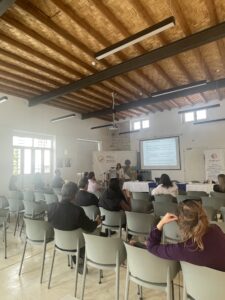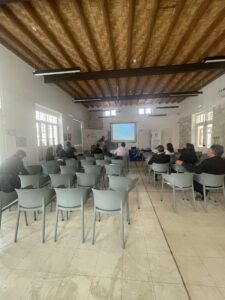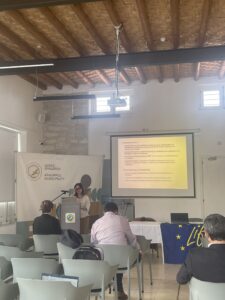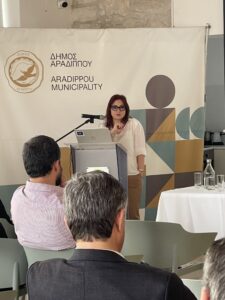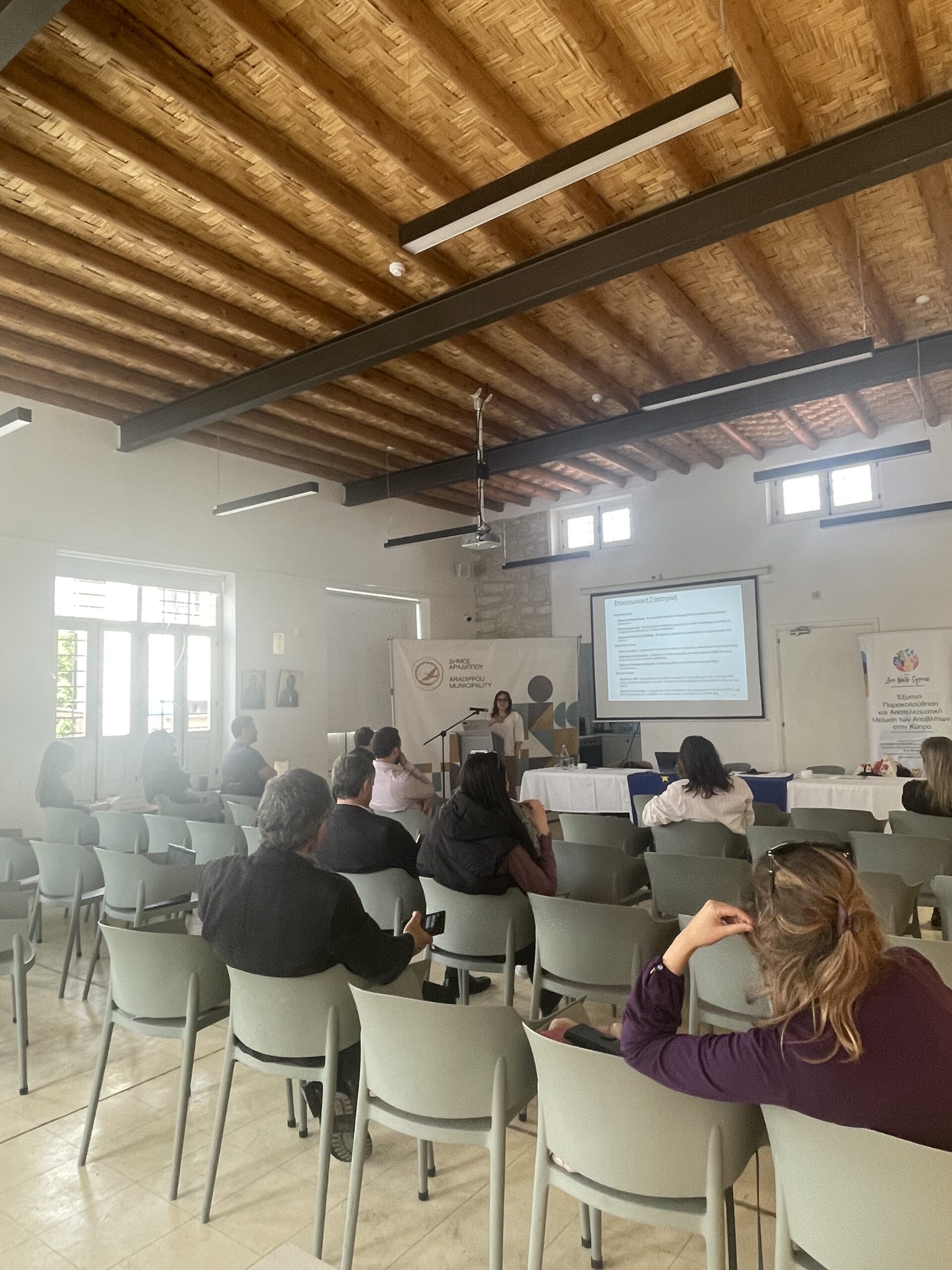On April 2nd, a training seminar was held in the unified Municipality of Aradippou as part of the pilot implementation of the Pay-As-You-Throw (PAYT) system, with the participation of the project’s partner municipalities.
The main objective was to support the agencies of the Municipality of Aradippou in preparation for the implementation of the PAYT system, through the presentation of the Action Plan. At the same time, there was an exchange of know-how with the partner municipalities, leveraging Aradippou’s experience to date in implementing the separation of organic waste from large producers.
During the seminar, a detailed presentation was given on the plan developed for the implementation of the PAYT system in the Municipality of Aradippou, based on the results of the Feasibility Study. Initially, the main design parameters were presented, followed by a discussion on issues related to the management of organic waste, the required equipment, and the key financial data associated with the system’s implementation. Special emphasis was placed on presenting four alternative pricing scenarios, involving both prepaid bags and prepaid bins, aiming to identify the most viable and applicable solution.
The seminar then addressed the social policy that the Municipality of Aradippou could adopt in the context of the PAYT system. During this segment, representatives of various local authorities expressed a shared view on the need to revise each municipality’s policy, proposing the inclusion of income and age criteria to ensure a more targeted and socially just distribution of benefits.
Subsequently, administrative issues related to the implementation of the PAYT system were examined. Emphasis was placed on forming working groups and defining responsibilities. A proposal was made to establish an interdisciplinary team with an implementation officer, to strengthen or, where necessary, create new administrative structures, and to ensure cross-sectoral cooperation and support from external bodies and NGOs. Additionally, the importance of establishing a Monitoring and Feedback Committee was highlighted. This committee would be responsible for tracking implementation, evaluating effectiveness, and collecting feedback from citizens and stakeholders, thus significantly contributing to the sustainability of the system.
The effective implementation of the Pay As You Throw system requires a comprehensive communication strategy. During the presentation, the role of informing and raising awareness among citizens was emphasized, particularly regarding proper sorting, separate collection, and responsible consumption. This would be achieved through information campaigns, educational activities, and partnerships with NGOs and other stakeholders. Within this context, the Municipality of Aradippou’s campaign “Pay As You Throw and… Nothing Goes to Waste” was presented, which uses modern communication tools and educational materials.
Special attention was also given to the inspection and monitoring process. Discussions were held on how inspections can yield positive outcomes and the necessary equipment required for their implementation. Additionally, reward actions for citizens were presented to encourage participation. Key challenges were also highlighted, such as illegal waste disposal, the difficulty in monitoring and identifying municipal solid waste, and the potential lack of citizen response. For each of these challenges, corresponding countermeasures were proposed.
The presentation concluded with a review of the overall steps taken so far by the Municipality of Aradippou to implement the PAYT system. A productive discussion followed, with participants sharing views and raising questions regarding the organic waste collection process (either through an external provider or by procuring refuse collection vehicles), technical details (such as bin lock types), eligible expenses, and the necessary equipment for inspections.
In this context, the need for the development of integrated monitoring and tracking software was highlighted. Such a system would allow for the recording of disposal types per collection point, with the capability of linking to respective addresses and management data. This system is expected to enhance targeted monitoring and transparency. Additionally, a request was made for the associated cost to be considered an eligible expense under the program’s implementation framework.
In conclusion, the next proposed step is to continue discussions and seek optimal solutions to the submitted proposals, with the goal of gradually and effectively implementing the PAYT system.
